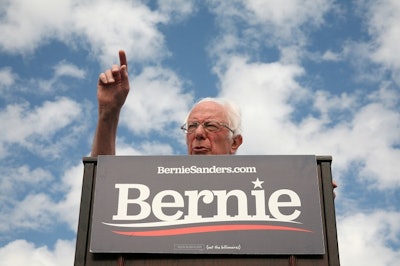
U.S. Sen. Bernie Sanders accused egg producer Cal-Maine Foods of using the country’s highly pathogenic avian influenza (HPAI) outbreak to exploit egg prices and increase its profits in an April 2 tweet. Also, he wants to tax them for it.
Sanders’ tweet read: “Why are the American people angry? Maybe it has something to do with the largest producer of eggs in America increasing its profits by 718% last quarter after doubling the price of eggs and reporting ZERO cases of avian flu. We must break up big Ag & enact a windfall profits tax.”
In Cal-Maine’s financial review that Sanders is referring to, it said that increased conventional shell egg prices drove the company’s third quarter fiscal 2023 nets sales to US$997.5 million. That value is more than double of that from the third quarter in fiscal 2022.
In the financial review, Sherman Miller, Cal-Maine Foods President and Chief Executive Officer, stated: “Our results are reflective of a dynamic market environment with higher average selling prices and favorable demand. Elevated market pricing continues, primarily due to the impact of the ongoing epidemic of HPAI, which has significantly reduced the nation’s egg-laying capacity. At the same time, consumer demand for shell eggs remained robust in the third quarter, which included the peak winter holiday season.”
Low supply and high demand
A windfall profits tax is a tax levied on an unforeseen or unexpectedly large profit, especially one regarded to be excessive or unfairly obtained. In this case, Sanders, and other politicians for that matter, believes the large egg producers, or Big Ag, should be under this rule due to the profits gained during the HPAI outbreak.
The reason Cal-Maine Foods profited so much in the last quarter is not because of Big Ag or because it hasn’t had any reported cases of avian influenza. It’s because the HPAI outbreak significantly reduced the supply of shell eggs and once again demand for shell eggs at retail has proven to be relatively inelastic.
Demand for eggs has remained high, and prices reached record high levels, just as they did in the HPAI outbreak of 2015. The high egg prices are what ration the supply of eggs to consumers. Consumers who don’t want to pay the higher prices will buy something else to eat, and these new habits survive when lower egg prices return.
Considering some members of Congress’ concerns over “windfall” profits, poultry producers need to understand that Congress’ appetite for funding indemnity payments may not survive future HPAI outbreaks.


















